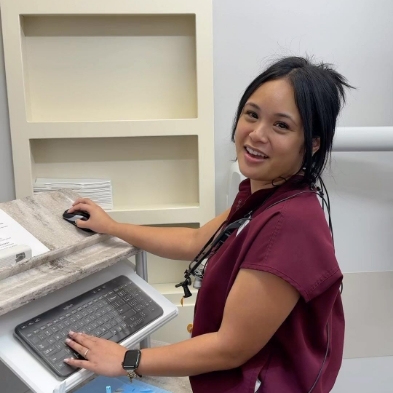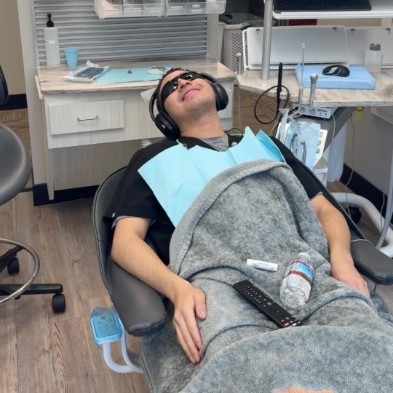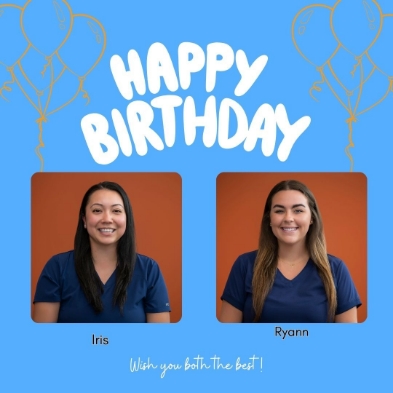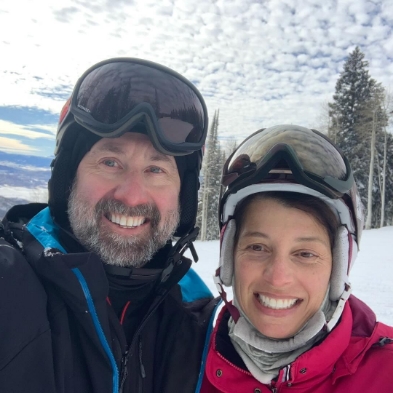Sleep Apnea Treatment Arlington Heights
Sleep Apnea Treatments for a Restful Night’s Sleep
Sleep apnea is one of the most common sleep disorders in the U.S. It affects millions of children and adults. The disorder causes patients to stop breathing for ten or more seconds at a time during sleep. For patients with severe sleep apnea, this may occur hundreds of times each night. Most patients visit a general physician or sleep doctor for sleep apnea diagnosis and treatment planning, but most don’t know that the dentist can help sleep apnea sufferers as well. If you or a loved one suffers from sleep apnea, please contact Westgate Dental Care to schedule a consultation visit with our team to discuss sleep apnea treatment in Arlington Heights.
Why Choose Westgate Dental Care for Sleep Apnea Treatment?
- Customized Oral Appliances
- Modern & Comfortable Dental Office
- Reduce Snoring From Sleep Apnea
Types of Sleep Apnea

There are two main types of sleep apnea: central and obstructive. Central sleep apnea occurs when the brain fails to send the appropriate signals for the body to breathe in and out. Obstructive sleep apnea is a result of physical airway blockage. Central apnea is less common and requires advanced treatment. Obstructive apnea makes up the majority of the cases and is easily treatable with a variety of solutions.
Learn More About Central Sleep Apnea
Learn more About Obstructive Sleep Apnea
Side Effects of Sleep Apnea

When the cessation of breath occurs, the brain triggers a panic response, alerting and awakening the body to restart breathing. Patients often do not notice their breathing has stopped or know that there is a problem. However, left untreated, sleep apnea can lead to a variety of adverse effects, including:
- Loud, chronic snoring
- Waking gasping or out of breath
- Frequent morning headaches
- Dry mouth, especially upon waking
- Excessive daytime sleepiness
- Inability to concentrate
- Memory loss
- Personality changes
Sleep Apnea Treatment Options
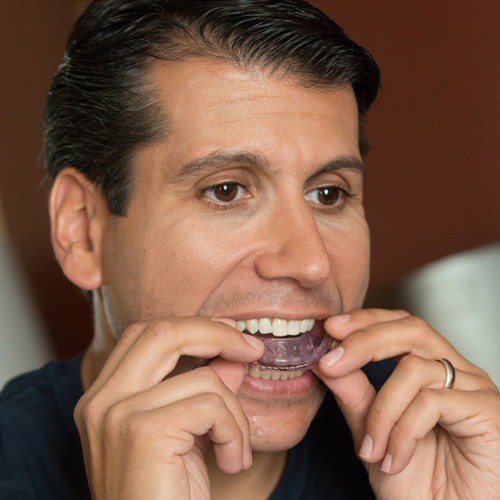
Traditionally, sleep doctors prescribed treatment using continuous positive airway pressure (CPAP) therapy. As the name implies, these systems use flowing air to keep the throat clear, allowing patients to breathe deeply. However, numerous patients find themselves unable to adjust to these treatments or use their CPAP systems inconsistently due to frequent travel that makes these large systems inconvenient. Instead, we offer comfortable, portable oral appliance therapy near Palatine for sleep apnea sufferers. Custom-made from high-quality materials, these oral appliances shift the jaw forward, place pressure on the throat, and allow people to breathe easily through the night.
Understanding the Cost of Sleep Apnea Treatment

The cost of sleep apnea treatment can influence a patient’s decision to move forward with a solution that promotes better breathing and improved sleep. However, at Westgate Dental Care, our dentists do not want individuals to avoid essential treatment out of fear that they will be unable to pay. This is why a scheduled consultation with our team is required. Based on the factors we will consider, we can implement a plan and file appropriate claims to help lower out-of-pocket costs.
Does Dental Insurance Cover the Cost of Sleep Apnea Treatment?
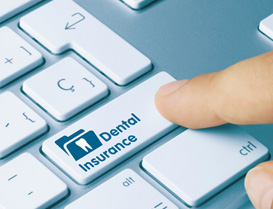
No, dental insurance will not cover the cost of sleep apnea diagnoses or treatment. The reason is that the condition is not related to one’s oral health, but is instead classified as a medical condition. This means that most patients will file a claim with their health insurance company to try and receive some kind of reimbursement for treatment, like oral appliance therapy.
Factors That Affect the Cost of Sleep Apnea Treatment
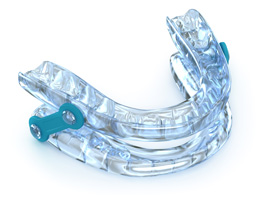
The total price of sleep apnea treatment will be based on the following factors:
- Type of Treatment: The most common methods of treatment include CPAP (continuous positive airway pressure) therapy and an oral appliance. Some medical insurance plans will indicate how much they will agree to pay, which can be helpful when determining any out-of-pocket costs that will be required.
- Insurance Coverage: Since sleep apnea treatment is usually not covered by dental insurance, any claims must be filed with your medical insurance plan. As long as the proper paperwork is filled out correctly, the chances of approval remain high.
Treat Your Sleep Apnea Now to Improve Your Health
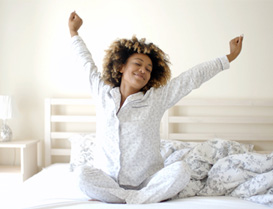
Although sleep studies, visiting with a sleep dentist, and undergoing treatment for sleep apnea might seem like too many steps for it to be worth it, failing to address this serious condition can negatively impact a person’s health.
Some of the most pivotal ways untreated sleep apnea can affect a patient’s overall well-being include:
- Depression
- Heart disease
- Diabetes
- High blood pressure
- Hypertension
- Drowsy driving
- Weight gain (obesity)
- Stroke or heart attack
- Memory loss
- Acid reflux
- Hyperglycemia
When any of these health issues develop or symptoms arise, patients can expect costlier medical bills over the years. This is why getting ahead of the problem now is actively encouraged. Taking control of one’s sleep apnea before it worsens can mitigate serious overall health problems in the future and keep more money in the bank.
Making Sleep Apnea Treatment More Affordable

At Westgate Dental Care, we understand how important it is to get essential rest for improved daily function. Although we are not in-network with any medical insurance plans, we will be happy to file claims by completing the necessary paperwork that is required. This will increase a patient’s chances of receiving greater reimbursement for treatment.
Also, we partner with CareCredit flexible financing to make paying for sleep apnea care easier over time. Instead of dealing with high upfront costs, a patient can break down their bill into manageable monthly installments.
There is also the option to enroll in our in-house membership program that allows an individual to pay one low annual fee and receive a discount on all qualifying services.
Sleep Apnea FAQs
Can I Diagnose Sleep Apnea on My Own?
Unfortunately, you will not be able to diagnose sleep apnea by yourself. Although many of the symptoms might indicate that you have the disorder, they won’t be the defining factor that verifies your suspicion. The best way to know for certain is by getting an official diagnosis from a sleep doctor, especially since different kinds of sleep apnea will need particular treatment approaches. In some instances, things like Apple Watches can help offer data regarding your sleep, but they won’t provide comprehensive testing for sleep apnea. A sleep test performed by a qualified sleep doctor will give you the exact information required to determine the type of sleep apnea you might have.
Why Should I See a Dentist for Sleep Apnea Treatment?
Since dentists have expertise in teeth, gums, and oral health, they’re also specifically trained in upper respiratory health, making them incredibly important for sleep apnea treatment. Some dental professionals offer help for obstructive sleep apnea (OSA), such as a custom-made oral appliance that can reposition the lower jaw and keep the mouth and neck tissues from obstructing the airways. Additionally, visiting your dentist for regular dental checkups can serve as a comprehensive approach to addressing both your oral health and sleep-related problems.
Will Sleep Apnea Go Away If I Lose Weight?
Having excess weight can be one of the many contributing factors to developing sleep apnea. This is because this condition can increase the risk of obstructing the airways due to the extra tissue in the neck and mouth. By losing weight, you can help reduce the amount of tissue surrounding the airway, allowing you to breathe better during rest.
That said, excess weight is only one of several factors, so it’s possible to still experience sleep apnea even after shedding a few pounds. To know whether your situation has gotten better or persists, you’ll likely require an additional sleep test. You’ll want to work closely with your healthcare professionals so that you can keep track of your progress and continue developing a better approach for treating your specific sleep apnea condition.
Will Oral Appliance Therapy Make CPAP Therapy Unnecessary?
In some cases, oral appliance therapy is so comfortable and efficient that it can make a CPAP machine unnecessary for certain patients, especially if their situation is mild to moderate and CPAP therapy is uncomfortable for them. With a CPAP machine, a patient will need to wear a mask that provides air through the airways, which is quite effective. Still, around half of prescribed CPAP users find it difficult to comply with this method.
For people with severe sleep apnea, oral appliance therapy by itself may not be enough to treat their symptoms. You’ll need to consult both your sleep doctor and dentist, as they may be able to develop a more comfortable and effective plan tailored to your specific needs.
Does Everyone Who Snores Have Sleep Apnea?
Snoring is simply the sound that occurs when air moves past tissues in the throat, causing them to vibrate. In many cases, snoring is an occasional occurrence and is nothing to be concerned about.
However, in some instances, the tissues that vibrate when you snore can completely block the airway, leading to pauses in breathing (known as apneas). Therefore, loud and frequent snoring is often seen as a major indicator that obstructive sleep apnea (OSA) may be present.
It is also worth bearing in mind that in some cases, OSA happens without any snoring at all.
Are There At-Home Remedies for Sleep Apnea?
Professional treatment is the best and most reliable way to address sleep apnea. However, there may be steps you can take at home to reduce the severity of your symptoms and enjoy higher-quality sleep. Here are some suggestions that might help:
- Sleep at a slight incline or on your side (as opposed to flat on your back).
- Do not consume alcohol or caffeine too close to bedtime.
- Get enough exercise, and do your best to manage your weight.
- Use essential oils or a weighted blanket to help you relax at night.
- Try not to use devices that emit blue light during the last few hours before bedtime.
- Maintain a clean and tidy home in order to reduce the presence of allergens that can cause nasal congestion.
How Should I Clean My Sleep Apnea Oral Appliance?
Keeping your appliance clean can prevent it from accumulating odors and bacteria. It can also protect your oral health. Here are a few helpful tips:
- Rinse your appliance each morning and gently brush it with a soft toothbrush and a mild cleaning agent.
- Store your appliance in its case whenever you are not using it.
- Soak your appliance in denture cleanser at least once a week.
- Do not use extremely hot water to clean your appliance; the high temperature could warp it.
Who Is Most at Risk for Sleep Apnea?
OSA is most common among the following groups:
- Men
- Postmenopausal women
- Overweight and obese individuals
- People with an untreated tongue tie
- Those who suffer from nasal allergies
- Smokers
Remember, even young people who seem to be in excellent health can develop sleep apnea! Even if you do not believe you are at risk, you should still monitor the quality of your sleep and seek professional help if you are struggling to feel well-rested, or if your partner has noticed that you sometimes stop breathing at night.
I Need a Checkup & Cleaning I am Looking for a Dentist for My Child I am Concerned About Bleeding Gums I Have a Cavity or Broken Tooth I am Missing One or More Teeth I am Unhappy with My Smile I am Scared of the Dentist I am in Pain & Need Help I Need My Wisdom Teeth Removed I Would Like to Reduce the Appearance of Fine Lines & Wrinkles View Our Services

